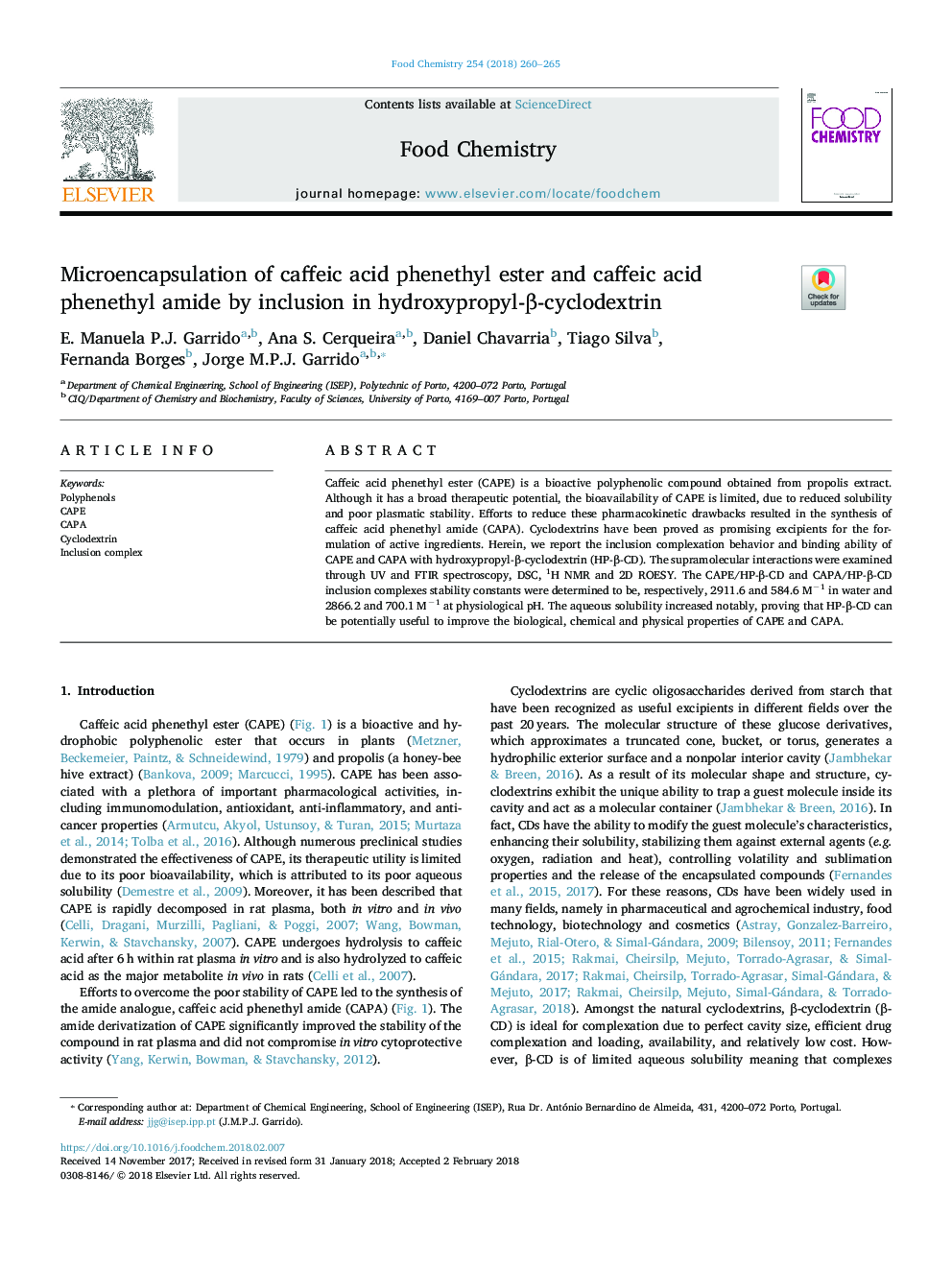| Article ID | Journal | Published Year | Pages | File Type |
|---|---|---|---|---|
| 7585516 | Food Chemistry | 2018 | 6 Pages |
Abstract
Caffeic acid phenethyl ester (CAPE) is a bioactive polyphenolic compound obtained from propolis extract. Although it has a broad therapeutic potential, the bioavailability of CAPE is limited, due to reduced solubility and poor plasmatic stability. Efforts to reduce these pharmacokinetic drawbacks resulted in the synthesis of caffeic acid phenethyl amide (CAPA). Cyclodextrins have been proved as promising excipients for the formulation of active ingredients. Herein, we report the inclusion complexation behavior and binding ability of CAPE and CAPA with hydroxypropyl-β-cyclodextrin (HP-β-CD). The supramolecular interactions were examined through UV and FTIR spectroscopy, DSC, 1H NMR and 2D ROESY. The CAPE/HP-β-CD and CAPA/HP-β-CD inclusion complexes stability constants were determined to be, respectively, 2911.6 and 584.6â¯Mâ1 in water and 2866.2 and 700.1â¯Mâ1 at physiological pH. The aqueous solubility increased notably, proving that HP-β-CD can be potentially useful to improve the biological, chemical and physical properties of CAPE and CAPA.
Related Topics
Physical Sciences and Engineering
Chemistry
Analytical Chemistry
Authors
E. Manuela P.J. Garrido, Ana S. Cerqueira, Daniel Chavarria, Tiago Silva, Fernanda Borges, Jorge M.P.J. Garrido,
